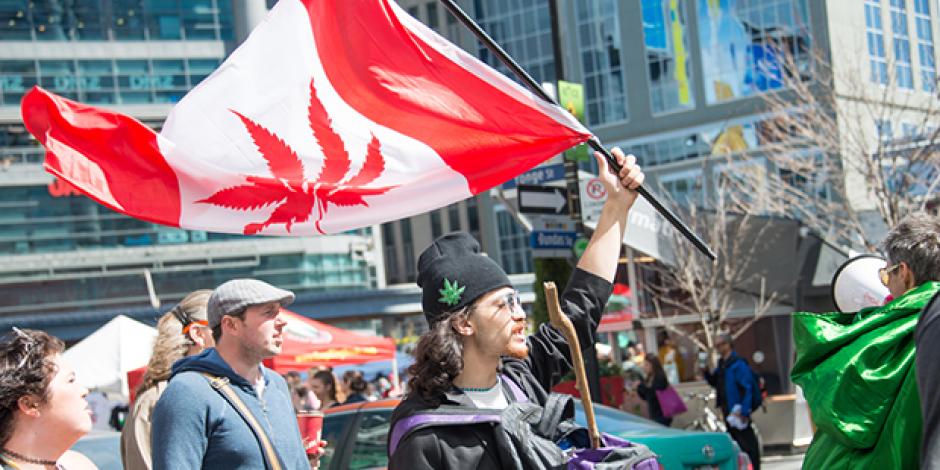Starten Sie den Audio-Text
Mit dem Audio-Player können Sie sich den Text anhören. Darunter finden Sie das Transkript.
David Ingram: Welcome, Margaret. Canada seems to have a relaxed attitude to marijuana use. So is everyone in favour of legalization?
Margaret Davis: No, there are some groups with serious concerns, including many Conservative politicians and organizations dealing with children and young people. There are also concerns about how First Nations — native people — will be to affect sb.Auswirkungen auf jmdn. habenaffected and whether they will be able to profit from liberalization. In May, the Canadian Senate, which is modelled after the House of Lords in Britain, recommended waiting another year before legalizing recreational marijuana, so that this issueSachverhaltissue could be studied in more detail. But Prime Minister Justin Trudeau has said that legalization will happen this year as planned. Trudeau says that legalization is “not an event — it’s a process”.
Ingram: The cannabis industry is big business. What does the government want to get out of it?
Davis: Well, the federal government and the provinces all think it will be a good source of tax revenueSteuereinnahmentax revenue. But as of the datezum Zeitpunktas of the date we’re recording this interview, the final price hasn’t been set. So initially, the federal government did its calculations based on a price per gram of ten Canadian dollars. But the provinces said that was too high, and it was provisionallyvorläufigprovisionally lowered to $9. But again, according to data collected by Statistics Canada, before legalization, Canadians were paying an average of about $7 per gram. So that could mean that the federal government’s tax revenues will be lower than they originally expected. And some critics have to suggesthier: darauf hinweisensuggested that if the legal price is too high, people will go back to getting their marijuana on the black market.
Ingram: Once recreationalder Erholung dienend; hier: als Freizeitdrogerecreational use of cannabis is legalized, will Canada become more open to decriminalizing other drugs?
Davis: I think that will take a while, but there have been some movehier: Vorstoßmoves in that direction. In April, the federal Liberal Party held a national policy conventionKongressconvention and one of the motionAntragmotions had to do with decriminalizing all illicitillegalillicit drugs. The rationaleBegründungrationale is that this would take the drug business out of the hands of criminals and make it easier for drug addictDrogenabhängige(r)drug addicts to get treatment. The motion to passhier: angenommen werdenpassed, but it will be a long time before a policy like that could ever come into law. Prime Minister Trudeau says it’s not a priority at the moment, and it would certainly to face sth.sich etw. gegenübersehenface a lot of opposition.
Ingram: I can imagine it would. Well, we’ll follow this story closely in the weeks and months to come. And many thanks for coming in to explain the situation to us, Margaret.
Davis: you’re welcomegern geschehenYou’re welcome. Thank you!
Neugierig auf mehr?
Dann nutzen Sie die Möglichkeit und stellen Sie sich Ihr optimales Abo ganz nach Ihren Wünschen zusammen.



